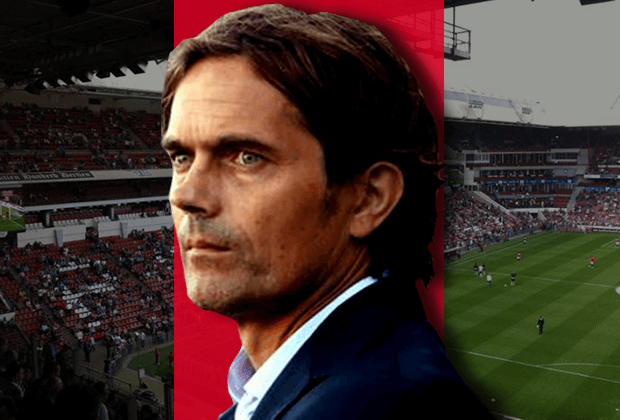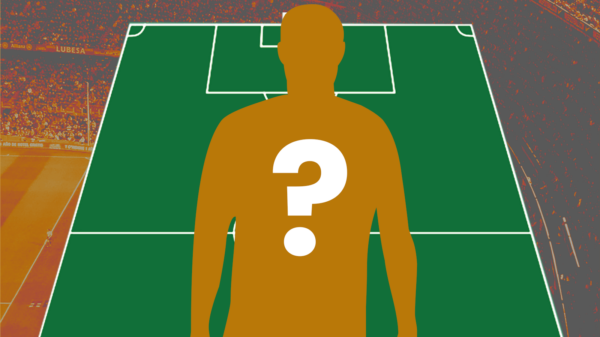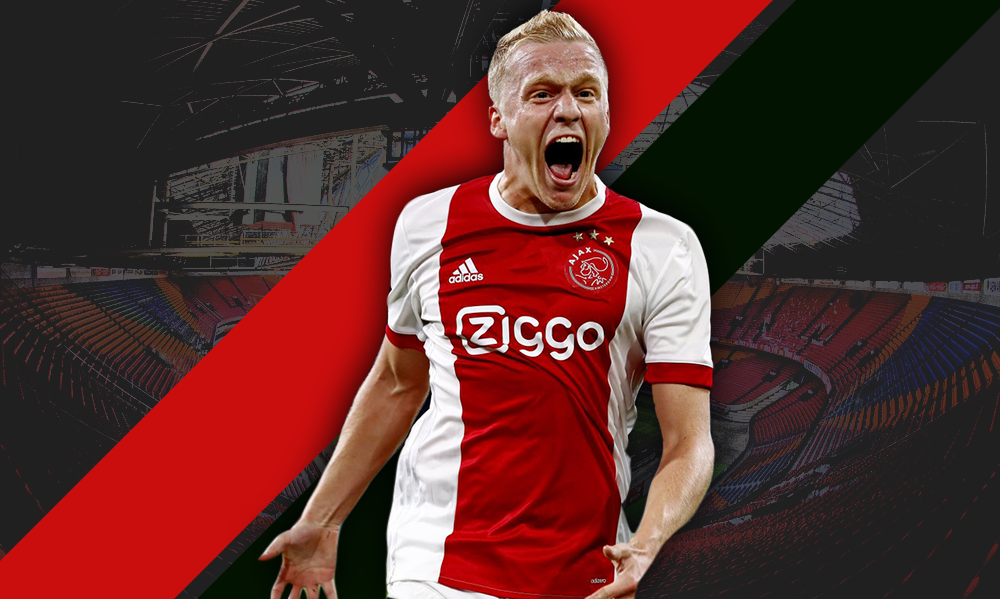While this website has made its name focusing on the lesser known youth of this beautiful sport, and combined it with a tinge of tactical flavour meant for the football enthusiast, we found a large gap to be exploited in terms of combining the two. This mini-series thus focuses on young managers (below the age of 45) and their tactical philosophies, deriving what got them here and where they could go. Raphael Chidavaenzi looks towards PSV Eindhoven and their beloved manager, Phillip Cocu, in this part.
Background
As a player, Phillip Cocu was a midfield general who also had an eye for a goal or two. During his professional career he was famously known for his spell with Barcelona which saw him become the most capped foreign player in the club’s history until Lionel Messi came along. Over the 6 years he featured 291 times scoring 31 times in all competitions. Towards the end of his Barcelona spell he couldn’t agree contract terms with them and decided to return to his beloved PSV Eindhoven who he has now come to manage.

He began his managerial career with PSV in 2012 when he took over as caretaker manager, despite winning the KBVN cup the board went against him for the manager’s job although results were promising. Dick Advocaat took over the reigns as first team manager after the board opted for more experience in the 2012-13 season, whilst Cocu became manager of the Under-19s to get more managerial experience. At the end of the season it proved vital as Cocu was handed the top job on a four year contract after Dick Advocaat quit the post.
Tactical Philosophy
Defending
When defending PSV particularly used a zonal marking system, and try to stay in a solid structure which can be hard for teams to break down. They are conservative in pressing, only pressing in the right areas at the right time, we saw Porto do this in the first leg of their tie against Bayern Munich where they won 3-1, when used correctly it is deadly and ensures the team is always in control.
In this image the players circled in red are the back four, their job being to defending their box. Only players closest to the opposition player on the ball will attempt to close them down. In this scenario the midfield 3 are pressing Hulk, Rekik (the right sided centre back) is prepared to step out and put pressure on. Hulk takes a shot from distance and scores. Similar to teams like Atletico Madrid who defend deep, it can be difficult to combat the threat of talented individuals like Hulk who can drag their players one way then the other.
A similar situation here against Ajax, three of the back four furthest away from the ball defend zones, the left full back assisted by a midfielder, press the Ajax player on the ball. A goal results from this as the player on the ball, managers to whip in a cross which is met by the player circled in white, who manages to get between Rekik and Arias (the right back and right sided centre back)

The usual structure of Cocu’s team in defence is illustrated in the diagram. The back four stay narrow if possible, but due to the nature of their style of pressing full backs can find themselves wider to combat threats on the wing. Wing play and individual dribbling have been some of the tactics used by teams against PSV as it forces them to come out of their rigid shape at times.
In defence, the midfield three will usually press in front of the back four and attempt to prevent long shot opportunities. For the three attackers, the wingers, usually Depay and Narsingh have the job of staying goal side of opposition full backs and neutralising their threat. However against stronger opponents when 1-on-1s can be dangerous, they help out the 2 full backs defend the wings. The lone striker usually has the simple job of occupying centre backs and positioning himself as an obvious target for launching attacks.
It is also important to note PSV’s extremely non aggressive approach, so it’s easy to assume Cocu encourages his players to stay on their feet and not commit to tackles. It’s also emphasized by the lack of a combative midfielder in the side.
Attacking

In contrast to their Laissez faire approach at the back PSV are much more exuberant going forward, but it’s difficult not to be when you possess energetic players such as Depay and Wijnaldum. PSV effectively attack through the wings but there is more to their game than that as they favour creating chances from deep. Any of their midfield 3 are capable of picking out a pass, so the job of the wingers, full backs and striker are to make the correct runs. Depay and Narsingh tend to hug the touch line and hover around the centre line effectively making themselves available to counter when their teams regain possession. Once this occurs, the end goal is simply to transition from defence to attack as quickly as possible.
It’s useful to say that Cocu has done well in utilising the abilities of individuals in attack, during the 2014-15 season they had a fantastic return of 92 goals in 34 games, and outscored rivals Ajax by 23 goals, yet its important to note that 62 goals came from 4 players, being the front 3 and Wijnaldum. This has resulted from the direct and high tempo attacking football.
Jetro Willems has also been a useful outlet for Cocu in PSV’s attacks. At times teams sit deep against PSV and Willems provides dangerous crosses from that left flank. As a result he managed 13 assists in the league campaign which is more than impressive for a full back.
In the screenshot above, Willems is on the ball on the left, PSV create a 4v4 situation in the box, but the dynamic movement of PSV players make them hard to deal with. Ideally in a left flank attack, the winger will tuck inside and central midfielders float into or around the box. Willems has an option to cross or pass to the circled player. He chooses to cross and this action results in a goal.
In slow tempo games or when PSV have high possession, Cocu’s team aim to outnumber the opposition with the 3 in midfield, creating a triangle with Guardado at the base. It becomes difficult for the opposition to press them as they would leave space out wide for players like Depay to exploit. The full backs, namely Jetro Willems tend come charging down the wing or surge towards the box to support play and create 2v1 situations in dangerous areas.

Play breaks and suddenly PSV players surge into attack, noticing the opportunity to overload the opposition, there is a dilemma for the 3 defenders as they have 5 attackers to contain.

The situation results in a 3v2 situation, but 2v1 on the near side, which is always a nightmare for defenders. The ball is slotted to Wijnaldum who coolly finishes when faced with a 1 on 1 with against the Feyenoord keeper.
A summary of Cocu’s philosophy would point to a high tempo game which he wants his players to attack directly and create 2v1s if possible. The net result has been highly entertaining football and lots of goals.
Three career defining games
3-0 vs Heracles: This was the scoreline in the KBVN cup final of 2012 and may have went some way to securing Philllip Cocu the job he now has. What might have been if he had come out of his interim stint with nothing?
4-0 vs Ajax: This game came nearer the start of Cocu’s full stint and showed a sign of things to come. Their first league meeting in the 2012-13 season, Ajax as favourites came out guns blazing in attack with their silky style of play, but were in for a surprise as PSV were aggressive in pressing and very direct in attack which epitomises the tactical genius of Phillip Cocu.
4-1 vs Heerenveen: This was the game where PSV secured their first league title in seven years, also stopping Ajax’s charge of four consecutive title wins. Impressive in itself was the style in which Cocu’s team dethroned Ajax and finished miles ahead of them.
Three key players developed
Georginio Wijnaldum: Watching over the past couple of years he has developed into a quality midfielder, now almost renowned for making the same types of runs that have made Frank Lampard the legend he is. He seems to arrive at just the right time to bury goals in, but he also has the ability to take the ball past opponents. Cocu has made him team captain in 2013 at the age of 23, but injuries limited his involvement. Once he returned to full fitness there’s been no looking back as he’s captained the team to their title win, with a fantastic return of 16 goals in the league. Having earned himself a transfer he unfortunately parts ways with Cocu.
Memphis Depay: It’s an understatement to say Phillip Cocu is due a lot of credit for the introduction of Depay onto the world stage. Having promoted him to the first team during his interim spell, and shown faith in him over the past two years, the return for PSV has been exceptional. He managed 22 goals during the 2014-15 season and earning his club £31 million which is more than a dream return for any Eredivise club, though they did receive a similar amount for Ruud Van Nistelrooy. Phillip Cocu has shown faith in youth and Depay is a player who reaped the rewards last season. It may be too soon to say but, if Depay does win a Ballon D’or in the future Cocu deserves a mention in the awards speech
Jeffrey Bruma: At Chelsea Bruma was always considered a promising young player, but it isn’t until he joined Cocu’s PSV in the summer of 2013 that he really hit the ground running so he has Cocu to thank. The defender has formed a strong part of the back four in his first 2 seasons. There was mention of a buy back clause for Chelsea but more strong performances may see him out of the door to other big Champions league teams. PSV may have returned to Europe’s elite competition but they can’t hold off the financial muscle of their European foes.
PREVIOUS ARTICLE
NEXT ARTICLE
- Tactical Philosophy: Phillip Cocu - July 30, 2015
- Scout Report | Pierre-Emile Hojbjerg : Bayern’s Talented Young Dane - February 16, 2015































































